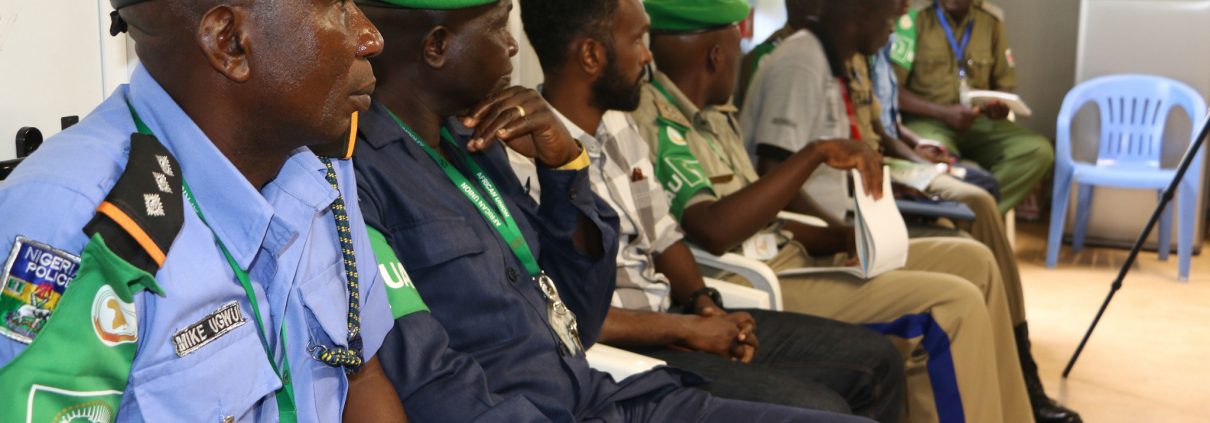New approaches for preventing violent extremism in East Africa
- Client: British High Commission East Africa
- Location: East Africa
The challenge : How best to strengthen community resilience to violent extremism?
What prevents a young unemployed Tanzanian man from joining an extremist organization? What reduces the likelihood that a poor mother from Kenya’s coast might unwittingly offer her child as collateral to a recruiter in exchange for financial support? What options does a young woman in Eastern Uganda face other than to feel compelled to marry into a ring of militants? What are the ideological incentives that inspire a pious community preacher toward violence? How best to prevent and counter the rise of Violent Extremism (VE) in East Africa?
Hard questions such as these have increasingly vexed policy makers, security actors, political leaders, development organisations and community representatives across the region in recent years. All too often, the response has been viewed through the narrow lens of counter-terrorism, or reduced to an issue of poverty and unemployment, or argued to be the unfortunate by-product of someone else’s ‘war on terror’.
In the absence of compelling answers, the British High Commission boldly committed to a 3-year programme to tackle the drivers, narratives and enablers of violent extremism. In 2015, it commissioned Wasafiri as its Regional Countering Violent Extremism (CVE) Research Unit to learn about what does, and what doesn’t work.
In the absence of compelling answers, the British High Commission boldly committed to a 3-year programme to tackle the drivers, narratives and enablers of violent extremism.
Our work : Launching the UK’s Regional CVE Research Unit
In 2015, Wasafiri established a dedicated CVE Regional Research facility (RRU), the first of its kind in the region, working alongside an Implementation Unit overseen by Development Alternatives International (DAI). The RRU quickly established a capability for primary research and community engagement that stretched from Kenya’s remote North-East to Tanzania’s turbulent Tanga region, to Uganda’s hidden religious communities. Since its founding, it has:
- Developed community-led approaches to VE, including in hotspot Kenyan counties such as Lamu and Garissa.
- Worked with communities to identify at-risk groups, including in some of the hardest to access and most insecure regions of East Africa.
- Helped identify and strengthen networks and partners for the implementation of CVE initiatives across the region.
- Examined the context and dynamics of VE in Ethiopia, Kenya, Somalia, Tanzania and Uganda.
- Established forums for the coordination of research aligning the wider body of research and evidence in the region.
- Helped develop the strategy, theory of change and monitoring approaches for the UK’s regional programme.
- Investigated vital areas of interest in preventing VE, including
- Community-security cooperation
- The role of social networks and influencers
- The role of women in VE and in PVE
- Youth education and employment
- The role of theatre and the arts in countering narratives
- Regional dynamics, networks and hotspot locations
- The role of private business in PVE
- The role of religious leaders in providing alternative narratives
In doing so, it has conducted 28 primary research projects, 10 secondary research reports and over 3,000 interviews covering 12 Kenyan counties, 6 regions in Tanzania and 3 in Uganda, as well as South-Central Somalia.
The outcome : Strengthened regional resilience to violent extremism
Wasafiri has seen itself as an actor, influencer and catalyst among the wider network of organisations and institutions tackling VE in the region. In doing so, it has contributed to;
- The development of government strategies and plans, including Kenya’s County CVE Action Plans, the Ugandan National CVE Strategy, and in the future, child protection policies in Tanzania.
- UK government policy in Kenya, Somalia, Tanzania, and Uganda through targeted research on the context and dynamics of VE.
- Stronger networks more effectively able to identify threats and respond to VE across the region.
- Successfully working with at-risk individuals and groups through trust-based and long-term engagement in VE-affected communities.
- Building the capacity of local leaders, government officials, civil society and informal networks to better understand and address VE in their respective communities.











